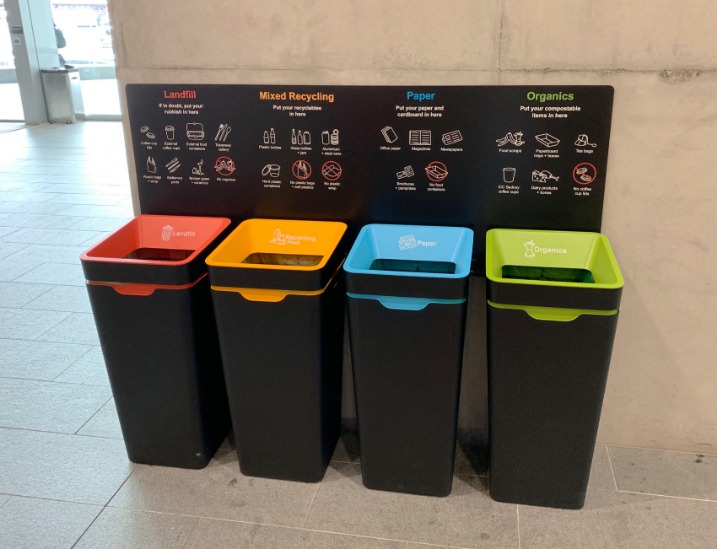Let’s be real. When you think of Japan, your brain probably conjures up a mix of ultra-fast bullet trains, hyper-efficient robots, and salarymen working themselves into a frenzy. It’s a stereotype for a reason, but it’s also only one side of the story. The other side, the one I find infinitely more fascinating, is how Japan has absolutely mastered the art of leisure. This isn’t about grand, expensive vacations. It’s about the small, intentional, and sometimes downright quirky ways people here carve out moments of pure, unadulterated bliss in their daily grind.
The Konbini: Your One-Stop Happiness Portal
Any discussion about daily life in Japan has to start with the konbini, the convenience store. Calling it a ‘store’ is like calling Mount Fuji a ‘hill’. It’s a cultural institution, a lifesaver, and a testament to the Japanese genius for perfecting the mundane. You haven’t lived until you’ve debated the merits of 7-Eleven’s egg salad sandwich versus FamilyMart’s famichiki at 11 PM. These places are microcosms of society itself. You’ve got the office worker grabbing a quick coffee, the student studying in the corner, the mom picking up dinner because she just couldn’t today.
And the food! This is where the magic happens. We’re not talking stale hot dogs rolling under a heat lamp for six hours. We’re talking about legitimately delicious, high-quality, and innovative ready-to-eat meals. Seasonal limited-edition treats drop with more hype than a new smartphone. There’s a silent, respectful efficiency to the transaction—a ballet of scanning, packing, and a chorus of robotic yet sincere “arigatou gozaimashita”s. The konbini isn’t just convenient; it’s a reliable anchor in the chaotic flow of the day.
The Pursuit of ‘My Boom’
In a society that often values conformity, there’s a beautiful counter-movement known as ‘my boom’ (マイブーム). This is your current personal obsession, the thing you’re unreasonably into right now. It’s a socially acceptable, even encouraged, form of hyper-specific hobbyism. Your ‘my boom’ could be visiting every single temple dedicated to a specific fox deity, meticulously crafting the perfect cup of pour-over coffee, collecting vintage aloha shirts, or trying to bake the fluffiest castella cake known to mankind.
This isn’t just a hobby; it’s a form of identity and a way to connect. You’ll find entire communities, both online and in tiny bars in Shinjuku’s backstreets, built around these shared, niche passions. It’s a reminder that under the surface of a collective culture, there’s a deep, vibrant well of individuality. People find their tribe not through broad categories, but through these wonderfully specific, self-directed quests for joy. It’s the ultimate “you do you” philosophy, wrapped up in a neat Japanese phrase.
Pop Culture: Not Just Anime (But Yes, Also Anime)
Okay, we have to talk about pop culture. Yes, Akihabara is a neon-drenched temple to anime and manga, and it’s as overwhelming and amazing as you’d imagine. But Japanese pop culture is so much more layered. It’s the witty, self-deprecating humor of a Yoshimoto Kogyo comedy duo on late-night TV. It’s the absurdist variety shows where celebrities are forced to do bizarre challenges. It’s the J-pop idol groups whose fanbases operate with a military-level precision of support.
It’s also in the fashion subcultures that bloom, evolve, and sometimes die within the span of a season in Harajuku. One week it’s all about 90s nostalgia, the next it’s ‘cottagecore’ meets cyberpunk. This constant churn of trends isn’t seen as fickle; it’s a form of play, a way to experiment with identity. And it all exists alongside a deep reverence for traditional arts—kabuki, noh, tea ceremony. The real magic is how these old and new worlds don’t just coexist; they constantly inform and influence each other.
The Unspoken Rules of Unwinding
Leisure here often comes with a side of unspoken etiquette. Take hanami (cherry blossom viewing). It looks like a chaotic, boozy picnic under a beautiful tree. And it is. But there’s an order to it. Groups lay out their tarps with respectful distance, everyone cleans up meticulously after themselves, and the celebration is joyous but rarely rowdy. The pleasure is in the shared experience, the appreciation of fleeting beauty, and the respect for the public space you’re using.
Similarly, an evening at an izakaya (a Japanese pub) is a masterclass in social relaxation. You’re not just ordering a drink; you’re ordering a series of small plates to share, you’re pouring drinks for others, and the conversation flows as freely as the beer. It’s a designated pressure valve for the stresses of work, a place where hierarchy can soften, and bonds are strengthened. It’s structured fun, and somehow, that structure is what makes it so freeing.
For those looking to dive deeper into these nuances of daily life and culture, from the latest food craze to the subtleties of seasonal traditions, a great resource is the Nanjtimes Japan. It’s a fantastic portal for stories that go beyond the tourist brochures and really tap into what makes living here so unique.
The Quiet Joy of the Everyday
Ultimately, the Japanese approach to leisure is often about mindfulness. It’s finding profound satisfaction in the simple act of enjoying a perfectly prepared bowl of ramen, slurping included (it’s polite, I swear!). It’s the therapeutic effect of tending to a small bonsai tree or arranging a single flower in a vase. It’s the collective sigh of contentment in an onsen hot spring, staring out at a mountain view.
In a world that screams at us to optimize every second of our day, to turn our hobbies into side hustles, Japan offers a different model. It’s a culture that understands the value of stopping. Of doing something not because it’s productive, but because it makes you happy in that exact moment. It’s the celebration of the seasonal, the limited, and the fleeting. It’s a reminder that the best moments of life often aren’t the big, planned events, but the small, intentional pockets of peace we create for ourselves in between everything else. And that’s a trend worth adopting, no matter where you are.






